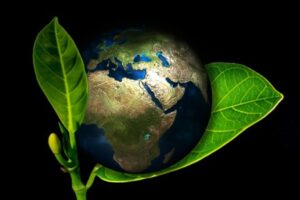By Kayla Ruff

Source: Gerd Altmann from Pixabay
The Biodiversity Finance Initiative (BIOFIN) was officially launched in Niger on March 22, 2023. BIOFIN is a global partnership launched by the United Nations Development Programme (UNDP) and the European Commission, and the initiative works to measure existing biodiversity expenditure levels, assess future financial needs, and design plans that will improve the efficiency of biodiversity management plans. By increasing funds and resources toward biodiversity preservation in Niger, BIOFIN could play a key role in conserving the nation’s biological diversity.
About 21 million acres or 6% of Niger’s land area is protected; however, over 70% of these protected areas have lost substantial portions of their biological diversity. Three of the protected sites, W National Park, Aïr and Ténéré Natural Reserves, are listed as UNESCO World Heritage Sites. These areas are among the most important regions in the Sahara for wildlife, as they are some of the last remaining habitats for a variety of threatened desert species. They are some of the most biologically diverse communities remaining in the Sahara and are home to the critically endangered addax and dama gazelle, the Saharan cheetah, and Barbary sheep. The dama gazelle is a critically endangered species that has become a national symbol for Niger.
Niger is home to over 1,400 plant species, more than 500 species of birds, and over 150 species of reptiles and amphibians. The country is also home to over 130 mammal species, one of which is the endangered West African giraffe. Once ranging from Senegal to Cameroon, there are now only about 600 West African giraffes left in the wild, and their populations are confined to just a small part of western Niger.
Preserving species like the West African giraffe and the dama gazelle is not easy, however. BIOFIN estimates that preserving biodiversity worldwide will require between 599 and 824 billion U.S. dollars, but at present, only 143 billion dollars are invested per year. The funding required for Niger’s biodiversity initiatives is unclear but will be evaluated.
The BIOFIN Niger program could help alleviate the financial burden that often prevents Niger’s biodiversity from being preserved. The BIOFIN process aims to improve budget planning, identify specific financial needs, develop and implement a range of financing solutions, and determine the baseline level of biodiversity-related spending for the country while tracking biodiversity in budgets. BIOFIN’s activities will also be conducted in close collaboration with other partners, including the Executive Secretariat of the National Environment Council for Sustainable Development (CNEDD) of Niger and the Capacities for Biodiversity and Sustainable Development (CEBioS) program of the Royal Belgian Institute of Natural Sciences.
While preserving Niger’s biodiversity is a difficult task that requires a multi-faceted approach, the launch of the BIOFIN initiative is a positive step towards a sustainable future.
West African Giraffe | African Wildlife Foundation (awf.org)
Biodiversity Finance Initiative (BIOFIN) | United Nations Development Programme (undp.org)
BIOFIN | United Nations Development Programme (undp.org)
Niger | African Wildlife Foundation (awf.org)

